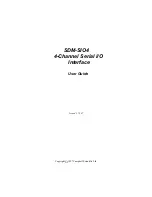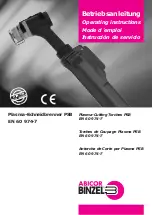
CAP.4
INSTALLAZIONE
QUESTE OPERAZIONI SONO DI COMPETENZA
ESCLUSIVA DEI TECNICI SPECIALIZZATI INCARI-
CATI DAL COSTRUTTORE O DAI RIVENDITORI
AUTORIZZATI .
SE EFFETTUATE DA ALTRE PERSONE POSSO-
NO CREARE SITUAZIONI DI PERICOLO E CAU-
SARE GRAVI DANNI ALLE PERSONE E/O AL
SOLLEVATORE.
VERIFICA DEI REQUISITI PER L’INSTALLAZIONE
VERIFICA DI IDONEITA’ DEL LOCALE PRESCELTO.
Il sollevatore è costruito per l’impiego in locali chiusi e riparati. Il
luogo prescelto non deve essere vicino a lavaggi, a posti di verni-
ciatura, a depositi di solventi o vernici, a locali con lavorazioni che
possono creare atmosfere esplosive.
VERIFICA DI IDONEITA’ DELLE DIMENSIONI DEL LOCALE E
DELLE DISTANZE DI SICUREZZA.
Il sollevatore deve essere installato rispettando le distanze di sicu-
rezza da muri,colonne, altre macchine, ecc... come indicate in Fi-
gura 35 e secondo le eventuali prescrizioni della legislazione vi-
gente nel luogo di installazione.
Occorre lasciare comunque uno spazio libero minimo di 700 mm
tra ogni parte mobile del sollevatore e del veicolo sollevato e le al-
tre strutture fisse o mobili piu’ vicine.
Verificare in particolare:
- altezza:minimo 5000 mm
(Per altezze inferiori considerare l’altez-
za dei veicoli da sollevare),
- distanza dai muri minimo 700 mm,
- spazi per lavorare minimo 800 mm,
- spazi per la POSTAZIONE DI COMAN-
DO,
- spazi per la manutenzione,
- accessi,
- vie di fuga in caso di emergenza,
- posizione relativa alle altre macchine,
- orientamento funzionale del sollevato-
re,
- possibilità di realizzare l’allacciamento
elettrico.
Nel caso di officine con più sollevato-
ri, la loro disposizione dovrà essere
dfinita e dettagliata in base alle norme
di lavoro e di sicurezza.
Fig.35
Distanze di sicurezza
ILLUMINAZIONE
Tutte le zone della macchina devono essere illuminate in modo
uniforme e sufficiente per garantire le operazioni di regolazione e
manutenzione previste nel manuale, evitando zone d’ombra, rifles-
si, abbagliamento e affaticamento della vista.
L’illuminazione deve essere realizzata in accordo con la normativa
vigente nel luogo di installazione (a cura dell’installatore dell’im-
pianto di illuminazione).
PAVIMENTO
Il sollevatore deve essere installato su platea
orizzontale di adeguata resistenza.
La platea e le fondazioni devono essere idonee a
sostenere i valori massimi di sollecitazione che il
sollevatore esercita sul terreno nelle piu’ sfavore-
voli condizioni di esercizio: la pressione specifica
esercitata dal sollevatore secondo l’uso previsto è
di circa 5 Kg/cm (Fig.36).
- Carico verticale: 1850 Kg
- Taglio: trascurabile
Il pavimento deve inoltre essere piano e ben livel-
lato (Max. 10 mm sul livellamento).
Fig.36
Carichi sulle fondazioni
CHAPTER 4
INSTALLATION
THE FOLLOWING OPERATIONS MUST BE PER-
FORMED EXCLUSIVELY BY SPECIALISED TECH-
NICAL STAFF WITH AUTHORISATION FROM THE
MANUFACTURER OR LICENSED DEALER.
IF THESE OPERATIONS ARE PERFORMED BY
OTHER PERSONS, SERIOUS PERSONAL INJURY
AND/OR IRREPARABLE DAMAGE TO THE LIFT
UNIT MAY RESULT.
INSTALLATION REQUIREMENT CHECK
MAKE SURE THAT THE INTENDED PLACE OF INSTALLATION
IS SUITABLE.
The lift is designed for installation in enclosed areas suitably pro-
tected from weather. The place of installation must be well clear of
areas in which washing or painting work is performed, and away
from solvent or paint storage areas or areas, where there is a risk
of potentially explosive atmosphere.
CHECK OF ROOM SUITABILITY AND SAFETY CLEARANCES.
The lift must be installed in compliance with the clearances betwe-
en walls, pillars, other machines, etc. indicated in Figure 35 and in
compliance with any law requirements in the country of installation.
In any event, there must be a minimum clearance of 700 mm
between all movable parts of the lift and the vehicle itself and the
nearest fixed or mobile structures in the workshop.
Check:
- height: 5000 mm min.
(calculate also the height of the vehi-
cles you intend to lift for inferior
heights),
- distance from walls: 700 mm min.,
- working space: 800 mm min.,
- CONTROL POSITION area,
- maintenance area,
- access,
- escape routes for emergency situa-
tions,
- position in relation to other machi-
nes,
- rational orientation of the lift,
- possibility of electrical connection.
If in a garage several hoists are in-
stalled, their emplacement has to
be carried out according to the re-
levant labour safety rules.
Fig.35 Safety distances
LIGHTING
All parts of the machine must be uniformly lit with sufficient light to
make sure that the adjustment and maintenance operations speci-
fied in the manual can be performed safely, and without areas of
shadow, reflected light, glare and avoiding all situations that could
give rise to eye fatigue.
The lighting must be installed in accordance with the laws in force
in the place of installation (responsibility lies with the lighting
equipment fitter).
FLOOR
The lift must be installed on a horizontal
platform with suitable load capacity.
The platform and the foundations must be
suitable to resist the maximum stress va-
lues that the lift can transmit to the ground
envisaging the worst operating conditions:
specific ground pressure exerted by the lift
in the prescribed conditions of use is ap-
proximately 5 kg/cm (Fig.36).
- Vertical load: 1850 kg
- Shear force: negligible
The floor must be flat and without gradients
(maximum of 10 mm tolerance)
Fig.36 Loads on foundations
23
P max.
1850 Kg.
Summary of Contents for 450LT
Page 1: ...I PONTE SOLLEVATORE A 4 COLONNE GB 4 POST LIFT 450LT ATLT...
Page 2: ......
Page 13: ...SCHEMI ELETTRICI ED OLEODINAMICI WIRING DIAGRAMS AND HYDRAULIC 11...
Page 42: ...COLONNE POSTS S ULEN COLONNES COLUMNAS...
Page 43: ...TRAVERSE CROSSBEAMS TRAVERSE TRAVERSES TRAVERSA OS...
Page 44: ...PEDANE PLATFORMS FAHRSCHIENE CHEMINS DE ROULEMENT PLATAFORMAS...
Page 45: ...LIFT TABLE LIFT TABLE...
Page 46: ...CILINDRO CYLINDER ZYLINDER V RIN CILINDRO...
Page 47: ...CILINDRI LIFT TABLE LIFT TABLE CYLINDERS...















































